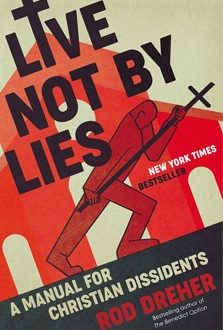 If you are not familiar with the poetry of George Herbert, you need to be. Charles Haddon Spurgeon once said, “I love George Herbert from my very soul.” In fact, Spurgeon loved the poetry of George Herbert so much, he used to have his wife read the poems to him every Sunday evening after church. Mrs. Spurgeon described their evenings this way:
If you are not familiar with the poetry of George Herbert, you need to be. Charles Haddon Spurgeon once said, “I love George Herbert from my very soul.” In fact, Spurgeon loved the poetry of George Herbert so much, he used to have his wife read the poems to him every Sunday evening after church. Mrs. Spurgeon described their evenings this way:
I read on and on for an hour or more, till the peace of Heaven flows into our souls, and the tired servant of the King of kings loses his sense of fatigue, and rejoices after his toil.
Spurgeon took great joy in listening to the poems and occasionally interrupting the poems to explain the meaning to his wife. Mrs. Spurgeon said that,
His enjoyment of the book is all the greater that he has thus to explain and open out to me the precious truths enwrapped in Herbert’s quaint verse.”
Unfortunately, many people miss out on the joys of Herbert’s poetry because they either have not heard of Herbert or have difficulty understanding his writings. That is why I am very pleased to see the release of Jim Orrick’s new book, A Year with George Herbert: A Guide to Fifty-Two of His Best Loved Poems. Jim Orrick is Professor of Literature and Culture at Boyce College, and his book is simply a commentary on George Herbert’s poems. Orrick describes his aim for the book this way:
I have taught Herbert’s poetry for many years to classes of very bright students at Boyce College. Most of my students have not heard of Herbert prior to enrolling in my class, and I have observed the frustration of my students as they struggle to understand Herbert. Coming into my classes, most of my students have had little exposure to any poetry at all, and, consequently, even intelligent, hard-working students sometimes find it challenging to understand Herbert. But once they begin to understand Herbert’s poetry, they love it. A few graduates have informed me that they continue to enjoy Herbert, and for some, Herbert’s poetry created in them a lifelong delight in poetry. I have often written with my own students in mind, but the book should prove useful to a wider audience both as an introduction to Herbert and as a basic primer for approaching all poetry (p. xi).
There are 52 of Herbert’s poems in this short book—one for each week of the year. Each one of them is preceded by an introduction that orients the reader to the thesis and main topic of the poem. The commentary for each poem is printed in footnotes underneath each poem. You can take a look inside the book for yourself by clicking here.
It will be worth your time to spend a year getting to know George Herbert, and I think you will find Jim Orrick to be a faithful guide.




2 Comments
John
Thanks for posting this! I’ve loved Herbert since college. Looking forward to reading this.
Christianes
Ah, the English metaphysical poets . . . Herbert, Vaughan, Donne.
I am particularly fond of a devotee of Herbert’s: Henry Vaughan, who wrote, this:
“I saw Eternity the other night,
Like a great ring of pure and endless light,
All calm, as it was bright;
And round beneath it, Time in hours, days, years,
Driv’n by the spheres
Like a vast shadow mov’d; in which the world
And all her train were hurl’d.”
Henry Vaughan made no secret of his admiration for Herbert, and as Herbert had entitled one of HIS books: ‘The Temple’;
Vaughan wrote his own volume and, as a tribute, entitled it ‘Steps to the Temple’.
Metaphysical poetry is meat and drink for the weary modern man who has held the world ‘too close’ and when ‘the world is too much with us’ (Wordsworth), we get ‘out of tune’
The poetry of Herbert, Vaughan, and Donne becomes a beloved and nourishing retreat for the world-weary among us.
Thanks for this post.